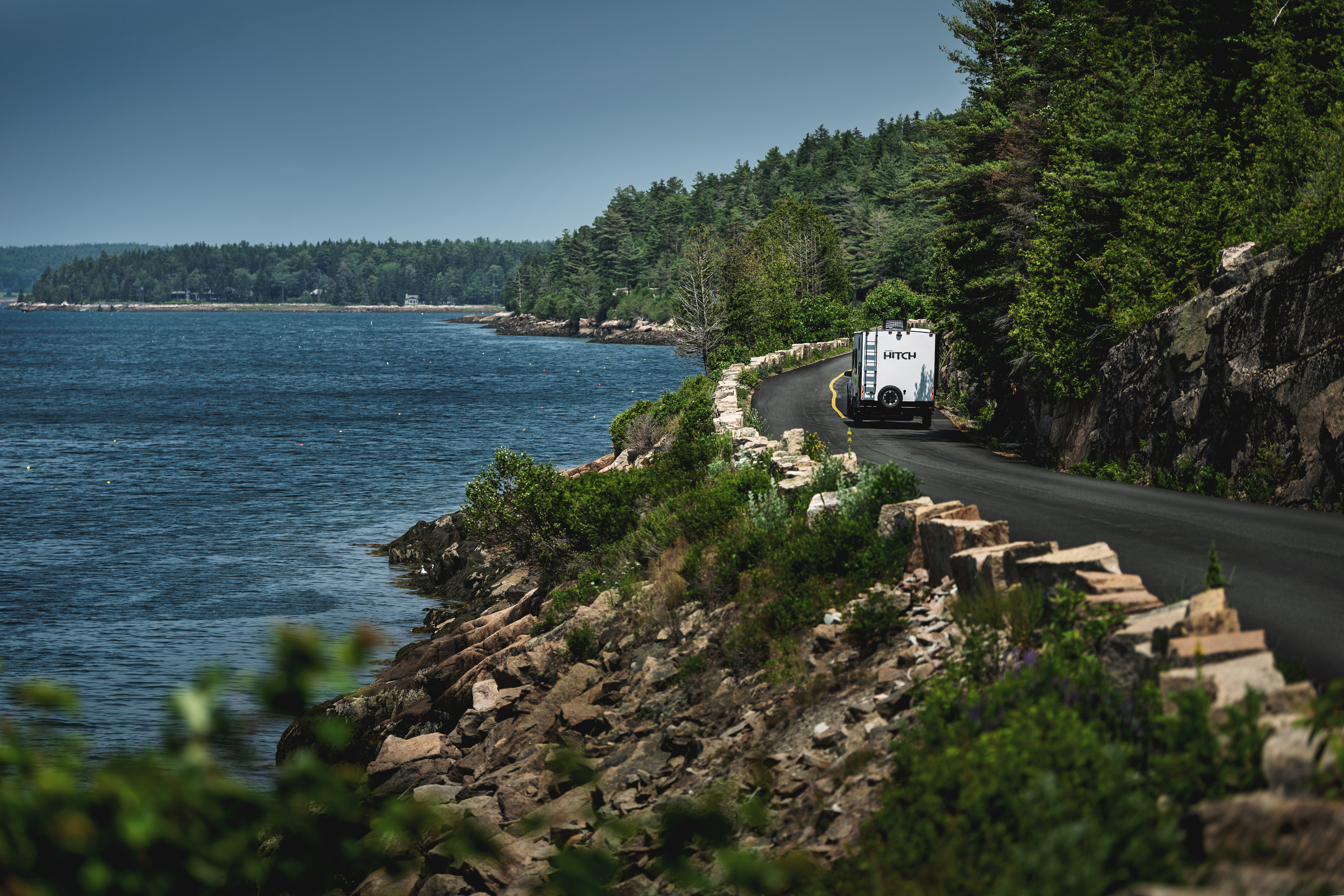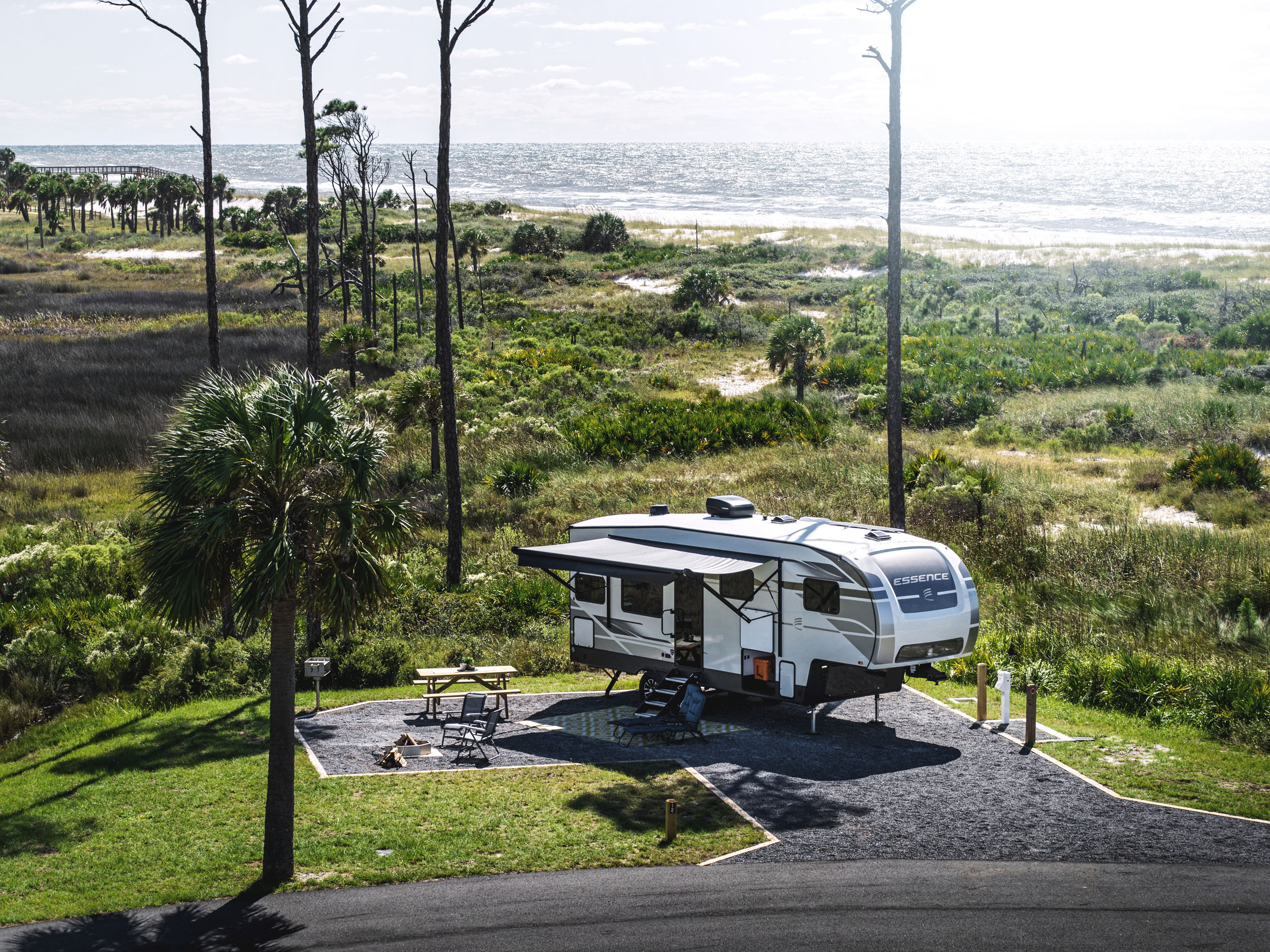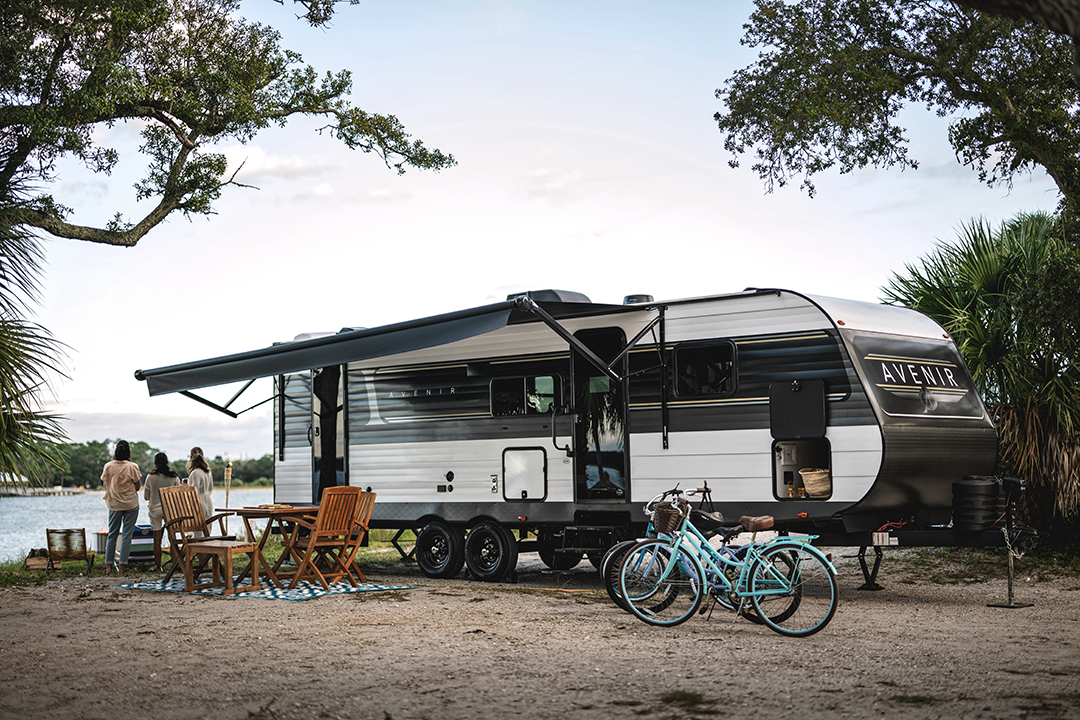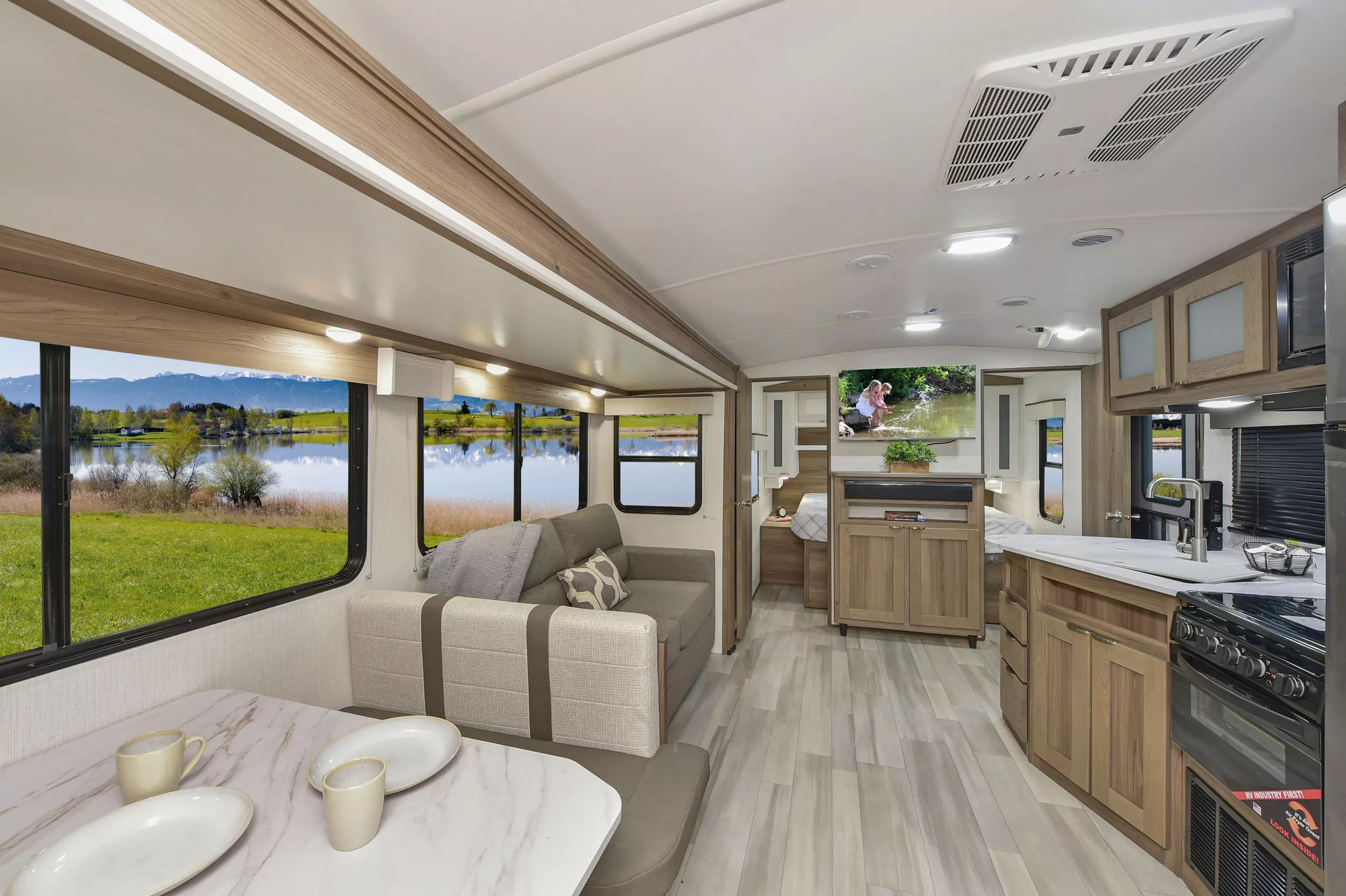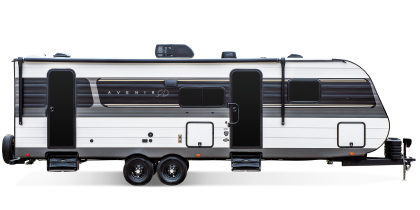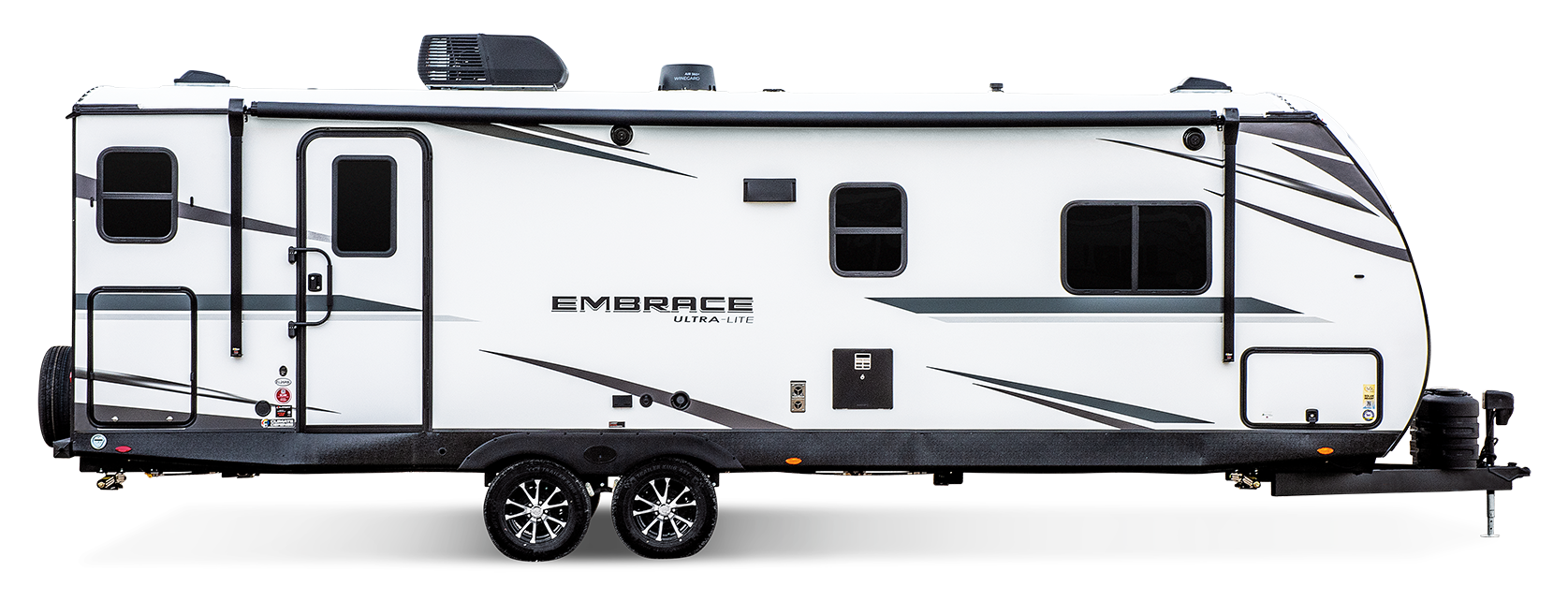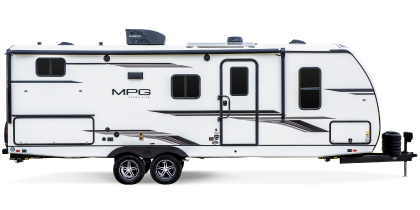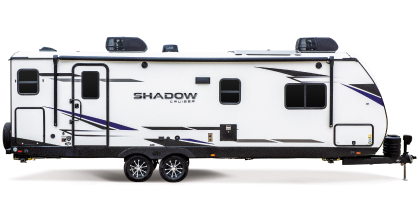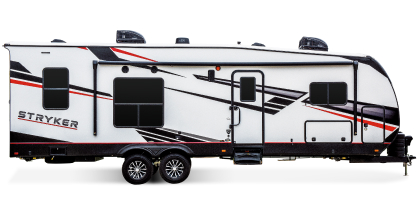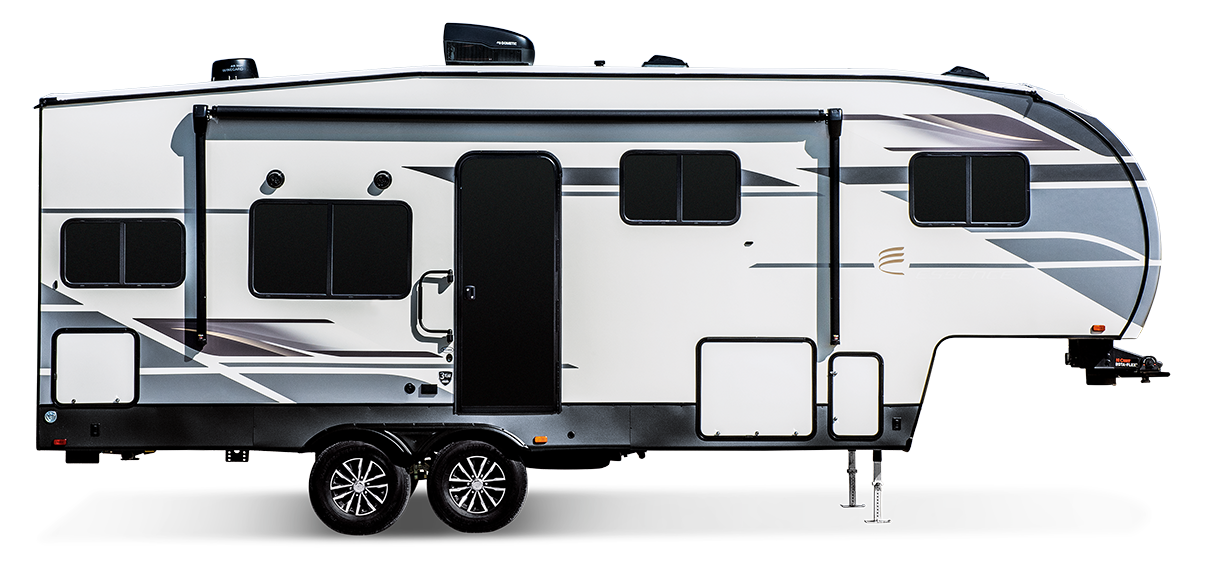Between climate change, rising energy costs and society’s love of technology, using a range of energy sources, such as solar power in your RV, makes sense. You may already be familiar with plugging into an electric connection at a campsite, or using a gas-powered generator to supplement energy when you’re off-grid. Today, we’ll walk you through solar power systems for RVs, how they work, and what you need to know to get started.
HOW DOES SOLAR ENERGY WORK?
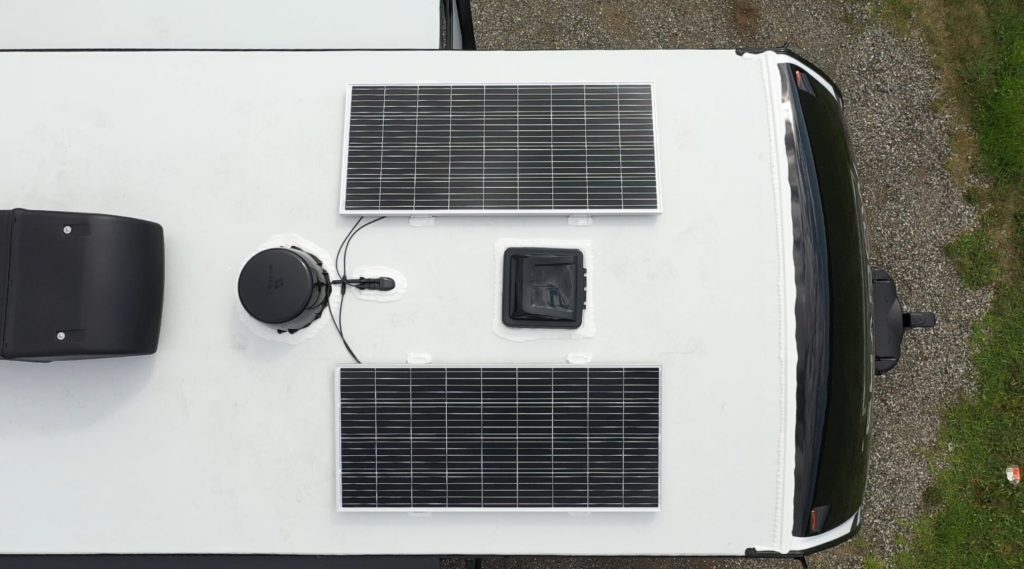
Solar panels capture the natural energy of the sun, which can be used in place of electricity for everyday needs. First, sunlight activates the panels, which are built with silicon cells that can absorb sunlight. When sunlight strikes the cells, they create an electrical field. The motion of atoms inside the cells creates a direct current (DC).
The DC power generated by solar cells charges solar batteries you store in your RV. When you draw upon the energy in those batteries, the current runs through an inverter. This converts DC power to alternating current (AC), so you can use it to power your appliances, gadgets and devices.
The amount of solar energy you can use will depend on the capacity and amount of solar panels you install. It also depends on the capacity and amount of batteries you use to store solar energy. Some people use solar energy as their sole source of power. Other people use it to supplement their energy use and reduce their reliance on fossil fuels or grid-powered electricity.
WHY DO CAMPERS LIKE SOLAR POWER?
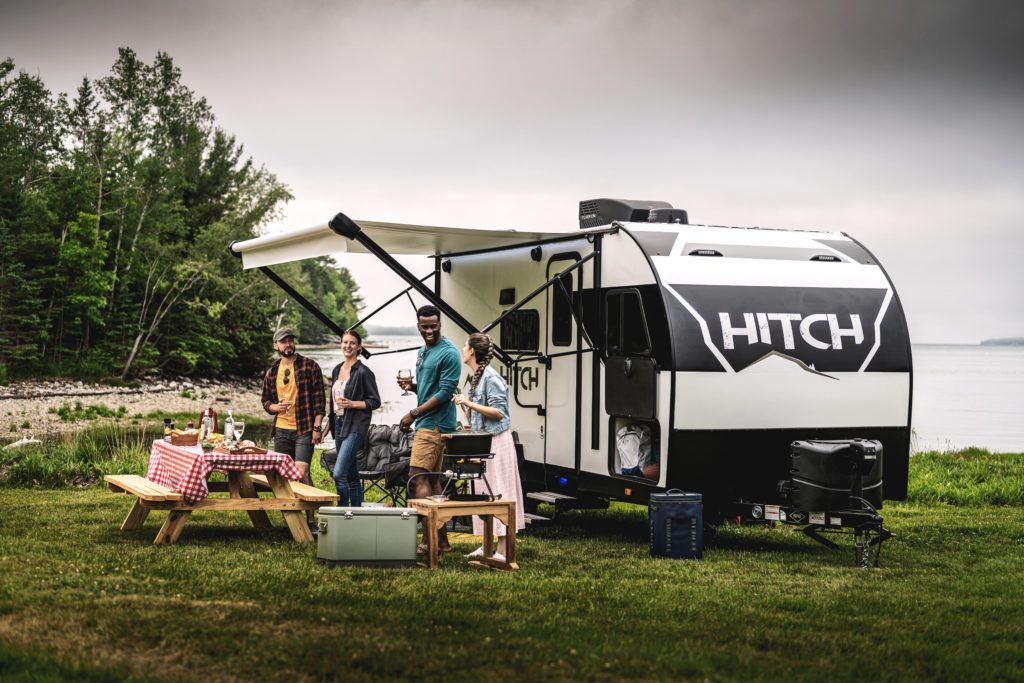
There are a number of reasons solar energy is popular among RVers. It’s a renewable energy source, which means it doesn’t deplete earth’s resources, no matter how much you use over time. Solar energy is free, aside from the initial set-up cost. It’s completely silent, which makes it perfect for both people who prefer to camp fully immersed in nature, and people who camp in close proximity to other people. Many campgrounds have rules dictating the hours campers can use noisy generators. But because solar power is totally silent, you’re only restricted by how much power your batteries can store.
Solar power is also incredibly low maintenance. Fewer than one percent of all solar energy systems fail in any given year. And the only regular maintenance they require is an occasional rinse off to ensure the panels are clean from dust and pollen. This allows your solar panels to absorb as much light as possible. If you’re in a climate that gets rain from time to time, that step pretty much takes care of itself.
Finally, using solar energy in your RV offers you unmatched flexibility. If you enjoy boondocking, you’ll have a consistent source of energy that can power your RV systems reliably. If you’re spontaneous, you’ll no longer need to reserve a campsite with a full electrical hookup to have a pleasant overnight stay. Wherever your adventures take you, you’ll always be able to use your appliances, recharge your phone and keep your RV running optimally.
WHAT ARE THE DOWNSIDES TO SOLAR ENERGY?
While solar energy offers benefits that outweigh the negatives, there are some considerations to keep in mind.
- Solar power systems can require a larger up-front cost than other energy solutions. They also typically require next to nothing to keep in good working order, which can help even out the cost over time.
- You’ll need to install solar panels, an inverter and batteries, and wire your RV to connect all elements of the system together and to your electrical outlets. If your RV doesn’t come prepped for solar power, you’ll need to pay for this out of pocket.
- The more solar energy you intend to use, the higher capacity solar panels and batteries you’ll need to buy, and the more they’ll cost. Higher-volt batteries charge faster and provide more hours of power than lower-volt options.
Despite all this, because solar power systems are so low-maintenance, you can expect to pay very little in upkeep. Once you buy and install your system, the cost of running it is next to nothing. If you have the money on hand to install a solar power system now, you’ll make up some or all of the cost over time in what you would’ve paid for electrical hookups or fuel for generators.
Can I ADJUST THE AMOUNT OF SOLAR POWER I WANT OR NEED?
At Cruiser, all our RVs come SōL Prepped with a roof docking port, wiring for solar panels, inverter and batteries. We provide dedicated housing for an inverter and transfer switch, and outfitted with up to 8 outlets prepped for solar energy. That means you can easily upgrade to one of our SōL tiers whenever you’d like. Or, install your own solar equipment without needing to do as much prep as someone without a Heartland RV.
Another consideration can be the climate of where you’ll be camping. Solar panels will still produce and collect energy on overcast days, but weather will have an impact on your system. For example, camping in the rainy Pacific Northwest may provide less solar energy every day than if you were camping in perpetually sunny southern California. However, most locations will have a mix of sunny and overcast days, which solar panels are equipped to handle. You can always adjust your energy use for a long stretch of unexpectedly bad weather and recharge your batteries on the next bright day.
DOES SOLAR ENERGY FUNCTION THE SAME WAY AS ELECTRICITY? CAN MY RV AND ALL MY APPLIANCES RUN COMPLETELY ON SOLAR POWER?
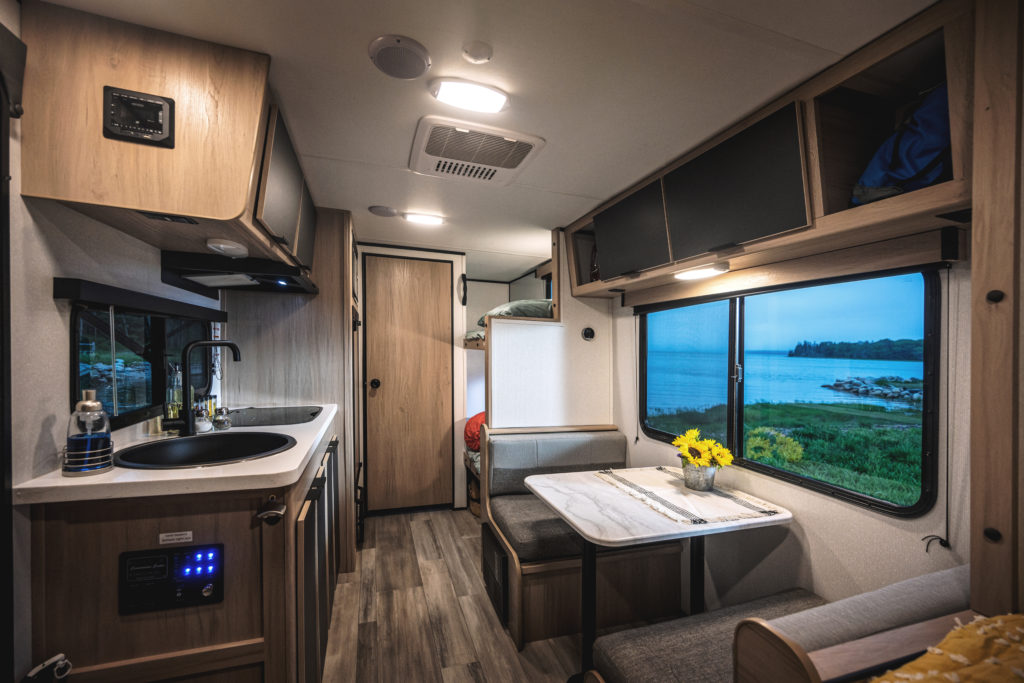
Yes, solar energy can function the same as electricity when it comes to powering your RV electrical systems and appliances. Once solar energy is stored in your onboard solar batteries, you’ll have a bank of power you can use the same way as electricity. Just remember that your solar power will need to run through an inverter to convert a direct current to an alternating current before you can use it for most residential applications. It’s absolutely possible to power your RV with 100% solar power.
THERE ARE A FEW THINGS TO KEEP IN MIND:
- You’ll need higher capacity solar panels and batteries to store the kind of energy you need to run completely on solar power. This can mean investing more money upfront.
- The size of your RV and appliances, the number of electrical gadgets and devices you use, and the amount of time you use these things will determine how much electricity you need to replace with solar power. A small travel trailer with minimal, small appliances will be easier to run completely on solar than a large, luxury fifth wheel with a big residential kitchen. In the case of the fifth wheel, you’ll need to invest more in your solar energy capacity to run fully on solar power.
- Even if you don’t convert 100% to solar energy, replacing some of your electricity use with solar power can result in significant savings, benefit to the environment and more travel flexibility. You can always add more or higher capacity solar panels over time, as your budget allows.
HOW DO I KNOW HOW MUCH SOLAR ENERGY I’LL NEED? HOW DOES THAT TRANSLATE INTO WHAT KIND OF PANELS/INVERTER/BATTERIES I SHOULD BUY?
You’ll need to do a bit of math to determine how much solar power you’ll need to power your RV (in full or in part). Additionally, you’ll need to zero in on the optimal capacity solar panels, inverter and batteries that will fit your needs best.
We’ve given detailed instructions over on our SōL – Powered by the Sun FAQ page, so head over there to get the rundown.
DO CRUISER RVS COME EQUIPPED WITH SOLAR POWER CAPABILITY?
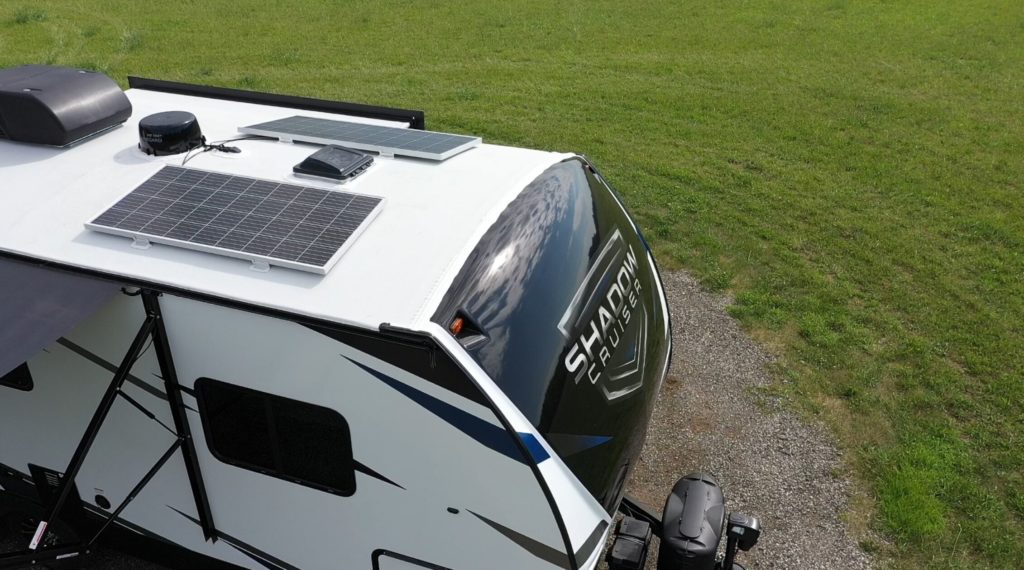
Yes. We’ve recently rolled out a line of solar offerings called SōL – Powered by the Sun, which comes in four tiers. All our current and future models will come SōL Prepped. This means that we’ve laid the groundwork for you to install a solar energy system. Solar prep includes the following:
- pre-installed roof docking port for solar panels
- all needed wiring to connect solar panels
- an inverter and batteries
- dedicated housing for an inverter and transfer switch
- a 30-amp charge controller
- up to 8 outlets prepped for solar energy use
With a SōL Prepped model, you’ll be able to add up to 2 190-watt solar panels on your own.
Our SōL line also includes tiers that provide one or more solar panels, inverters, transfer switches, charge controllers, and more. Our optional solar packages are perfect for campers who want to buy an RV that comes pre-equipped with everything they need to start using solar power.
